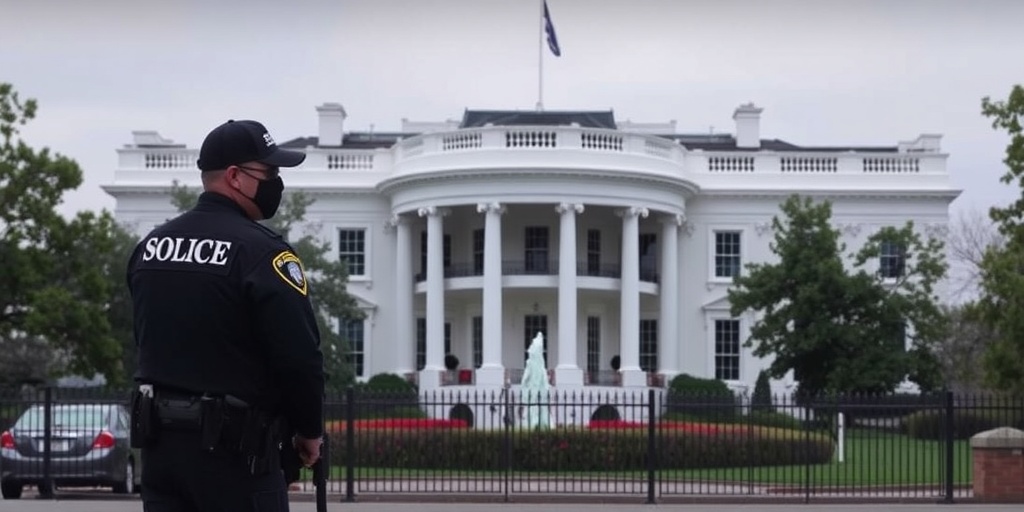Now Reading: Can This Georgia Factory Thrive Amid DOGE’s Rise?
-
01
Can This Georgia Factory Thrive Amid DOGE’s Rise?
Can This Georgia Factory Thrive Amid DOGE’s Rise?

Title: Fitzgerald, Georgia’s Ambitious Goal to Become the Hunger-Solution Capital Faces Setbacks Amid Federal Policy Changes
Fitzgerald, Georgia, a small city with a population of approximately 9,000, once harbored grand ambitions of becoming the hunger-solution capital of the world. This aspiration was fueled by a commitment to address food insecurity not just locally but globally. The community, long known for its agricultural contributions and community spirit, sought to develop innovative solutions to hunger, leveraging its resources, local partnerships, and a firm belief that sustainable practices could dramatically improve food distribution systems.
In recent years, Fitzgerald has been actively engaging local officials, community leaders, and residents in conversations about food. The city’s strategies included advocating for better access to nutritious food and collaborating with various stakeholders to implement programs aimed at alleviating hunger. This involved creating community gardens, establishing food banks, and providing educational workshops on nutrition and sustainable farming practices. Local nonprofits and grassroots organizations rallied around the cause, bringing in diverse perspectives and methodologies to tackle the pressing issue of food scarcity.
However, Fitzgerald’s ambition to champion global hunger solutions faced significant hurdles due to policy changes initiated by the Trump administration. One of the core strategies that had been driving Fitzgerald’s vision was its alignment with U.S. Agency for International Development (USAID) programs that aimed to enhance agricultural development and food security initiatives internationally. Under previous administrations, these programs had received robust funding and support focused on enhancing local agriculture, providing disaster relief, and improving access to food in developing nations.
As the Trump administration turned its focus toward domestic economic interests, funding for many international assistance programs—including those administered by USAID—was significantly reduced. This policy shift had a ripple effect, causing alarm among many who believed that the United States had a moral and strategic imperative to contribute to global food security initiatives. In Fitzgerald, community leaders expressed concern that these reduced resources could directly undermine their ambitious goal of positioning the city as a leader in tackling hunger.
Local officials worked diligently to find alternative funding sources and to sustain existing programs amid the uncertainty. They sought support from private foundations, corporate sponsors, and even grassroots fundraising efforts within the community. Despite these attempts, many residents began to feel the pinch as the overarching federal policies continued to limit resources needed for their initiatives.
Moreover, the impacts of these funding cuts were felt in broader contexts. Local organizations that had depended on USAID for training programs and partnerships felt their operations constrained, forcing them to downsize or halt key programs. This loss of federal support raised critical questions about the future of hunger-related initiatives not only in Fitzgerald but also in many communities across the country that sought to model their strategies after successful international programs.
In response, community members organized town halls and forums to discuss adaptations and innovative approaches that could work within the current constraints. They brainstormed local solutions and inspired collaborations with universities, culinary schools, and agricultural extension services that could provide support in knowledge-sharing and resource allocation.
The city also recognized the importance of focusing on community resilience. While the ambition to become the "hunger-solution capital" faced significant challenges, Fitzgerald’s leaders took pride in their commitment to cultivating a local food economy. Efforts shifted towards enhancing measures of food sovereignty, such as increasing local food production and supporting farmers markets that encouraged residents to consume food sourced from their own communities.
As Fitzgerald continues to navigate these tumultuous times of federal policy uncertainty, its community remains dedicated to the collective vision of creating sustainable, immediate solutions to hunger. While the dream of being recognized as the hunger-solution capital of the world may now be fraught with complications, the city is determined to uphold its commitment to combating food insecurity, promoting local agriculture, and fostering a spirit of resilience among its residents.
In order to cultivate long-term change, Fitzgerald’s commitment to the cause remains steadfast, aiming to inspire other communities and proving that even in the face of adversity, local efforts can yield impactful outcomes. Through strategic partnerships and an unwavering dedication to problem-solving, Fitzgerald can still hope to set an example of effective hunger alleviation on both local and global stages.
Stay Informed With the Latest & Most Important News
Previous Post
Next Post
-
 01New technology breakthrough has everyone talking right now
01New technology breakthrough has everyone talking right now -
 02Unbelievable life hack everyone needs to try today
02Unbelievable life hack everyone needs to try today -
 03Fascinating discovery found buried deep beneath the ocean
03Fascinating discovery found buried deep beneath the ocean -
 04Man invents genius device that solves everyday problems
04Man invents genius device that solves everyday problems -
 05Shocking discovery that changes what we know forever
05Shocking discovery that changes what we know forever -
 06Internet goes wild over celebrity’s unexpected fashion choice
06Internet goes wild over celebrity’s unexpected fashion choice -
 07Rare animal sighting stuns scientists and wildlife lovers
07Rare animal sighting stuns scientists and wildlife lovers





















